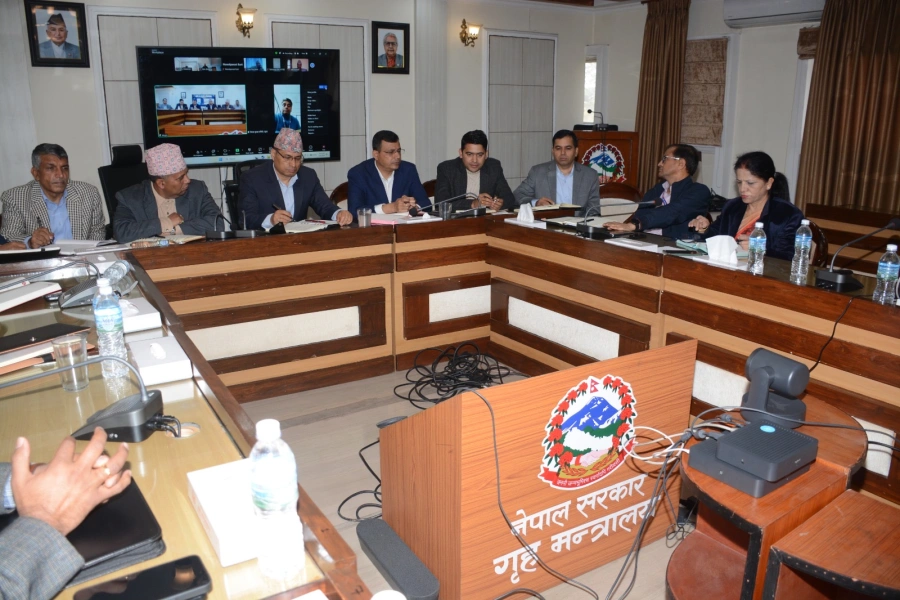KATHMANDU, April 19: United Nations human rights experts and international rights groups have urged the government of Bhutan to immediately release 32 long-term political prisoners held for decades, citing serious violations of international law, including torture, lack of due process, and inhumane detention conditions.
The call comes ahead of a scheduled EU-Bhutan human rights dialogue, just weeks after six UN human rights experts issued a formal communication raising alarm over Bhutan's treatment of political detainees-mostly from the Nepali-speaking Lhotshampa minority-convicted of terrorism and national security offenses in the 1990s and 2010s.
"These individuals were sentenced to between 34 years and life in prison for what appears to be peaceful protests against the mistreatment of the Lhotshampa community," said the experts. "Their detention appears arbitrary and violates their right to liberty under international law."
The UN Working Group on Arbitrary Detention found in 2024 that the detention of at least three prisoners was illegal, and cited torture used both to extract confessions and to punish dissent. The experts warned that many detainees were denied legal counsel, lacked understanding of the charges, and were unable to challenge evidence against them.
Bhutan Watch exposes deepening Human Rights crisis in Bhutan in...

Conditions in Bhutanese prisons were described as "dire," with insufficient food, water, heating, clothing, and access to doctors. Communication with families remains restricted. At least two prisoners have died in custody.
Amnesty International and Human Rights Watch (HRW) backed the UN's call, urging the European Union to press Bhutan for the immediate release of all 32 political prisoners. "Bhutan portrays itself as a land of 'gross national happiness,' but these reports reveal a grim reality for those imprisoned for peaceful dissent," said Smriti Singh, Amnesty's South Asia Regional Director.
HRW Deputy Asia Director Meenakshi Ganguly added, "Bhutan has adopted significant reforms since 2008, but the continued detention of political prisoners stains its human rights record. The EU and Bhutan's other international partners should demand their release."
Most of the prisoners were arrested during or after a wave of violent repression in the early 1990s that followed protests by Lhotshampa citizens demanding equal rights and citizenship. Over 100,000 Nepali-speaking Bhutanese were forcibly expelled, and those who remained or later returned to advocate for repatriation were arrested and convicted in trials marred by coerced confessions.
In some cases, the US deported resettled Bhutanese refugees back to Bhutan, where they were immediately expelled again to Nepal via India signaling ongoing state discrimination against the Lhotshampa community.
The UN experts highlighted that Bhutan's Penal Code and National Security Act use vague definitions of "terrorism" and "treason" that severely hamper political expression and civic space. They urged Bhutan to amend these laws to align with international human rights standards.
The experts have appealed directly to Bhutan's King Jigme Khesar Namgyel Wangchuck, invoking his constitutional power to pardon prisoners. Citing precedents from 1999 and 2022, when the King granted amnesty to political prisoners, they called for a similar act of clemency.
"In the interest of justice and national reconciliation," the experts stated, "Bhutan must embark on a meaningful process of accountability and reparation for historic rights violations."
As Bhutan seeks to strengthen international ties-especially with the EU, which provides development assistance and tariff-free trade access under the Everything But Arms initiative—its human rights record is drawing growing scrutiny.
EU lawmakers, including members of the European Parliament overseeing trade relations, have formally urged Bhutan's Prime Minister to take action. Rights groups say Bhutan's response to this mounting international pressure will test the government's sincerity in upholding democratic values and human rights.










_20240829165847.jpg)

-1765447895.webp)
_20201014060614.jpg)


























